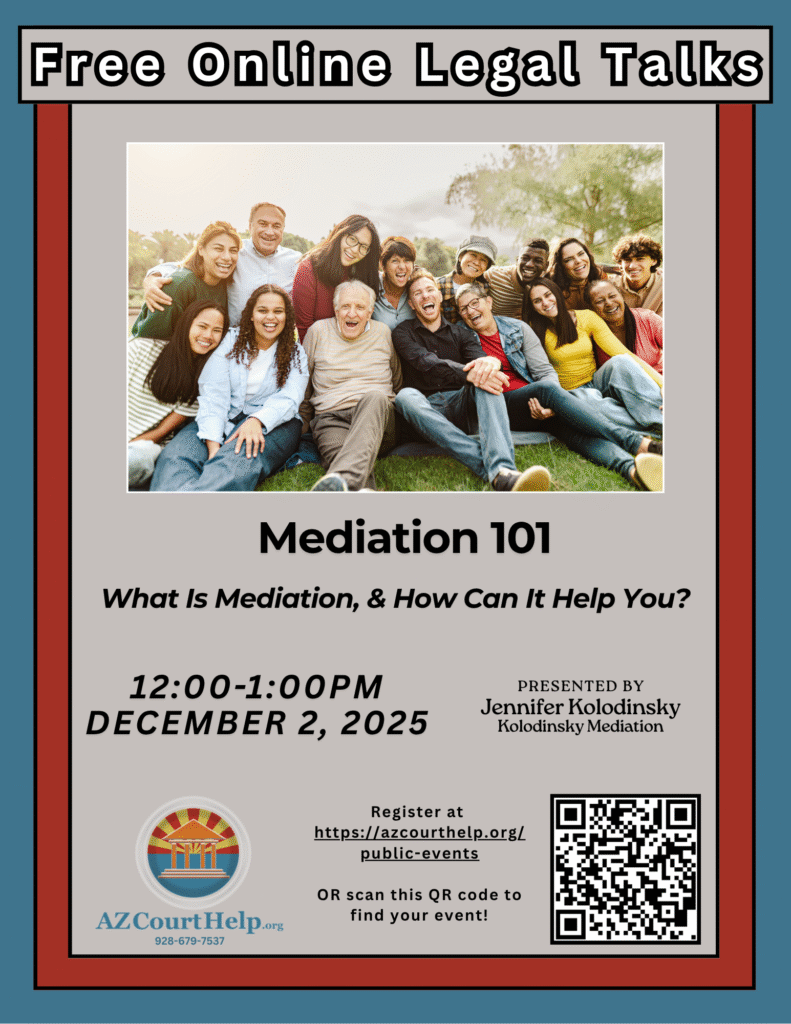Mediation Services
Explore The Services Offered
Mediation resolves conflict in a confidential setting, free from judgment and blame. You retain control of the outcome and actively participate in the solution, while dramatically minimizing your expenses and time spent on the matter. My practice focuses on Parenting Time Plans, Divorce, Organizational conflict, Neighbor disputes, and private Dependency.
Parenting Time Plans (PTP’s):
- Scheduled: PTP’s are the agreed-upon schedule of time in which each parent has access to the child or children at specified times.
- Relationships enhanced: Parents have ownership in the plan and thus are more likely to follow it, and children’s relationships are better with both parents.
- Detailed: In a PTP mediation, you will discuss day-in, day-out parenting time, summer parenting time, and holiday parenting time. Specific details will be discussed to reduce future conflict, and empower everyone, including children, to know what to expect.
- Customized: Weekly schedules, summer schedules, holiday schedules, etc. can be resolved in a way that considers your personal situation.
- Structured: Your PTP will be structured and clear. Tremendous relief comes from the creation of your PTP and is typically the most important concern for parents following separation or divorce.
- Empowered: Parents and older kids know exactly who they’re going to be with, and when, helping everyone feel more empowered. Younger children develop predictability.
- Cooperation: Having your Parenting Time Plan resolved can pave the way for continued cooperation as you build or enhance your co-parenting relationship.
- Post decree: Sometimes you have to make changes to a prior Parenting Time Plan. Mediation can help you navigate through both big and small changes for minimal cost.

Divorce
- Control over the outcome: You and your spouse develop an agreement that resolves your issues, not a judge. Since you work together to form the agreement, you have ownership over it and will be more likely to follow it.
- Reduced emotional cost: Divorce is difficult. Mediation is a kinder and gentler way to resolve the issues you will face in a divorce, and resolve your case quickly to allow you to move on faster. Mediation can resolve issues in hours or days, not weeks or months of lengthy trials and appeals.
- Reduced financial cost: Mediation costs a fraction of litigation. A litigated divorce can easily cost $15,000 to $20,00 per person. Your savings means you can use your financial resources for your future, or for your children’s future.
- Protect your children: If you have children, it is imperative to preserve a cooperative relationship between you and the other parent. Conflict between parents hurts children. Mediation will give you an opportunity to practice coparenting communication in a calm and respectful environment, and to learn communication skills for the future.
- Confidential: Mediation is a confidential discussion between the parties. You may speak freely about intense personal issues without fear of the information becoming public or being used in court.

Organizational Conflict
- Control over the outcome: The parties themselves develop an agreement that resolves their conflict and gets them back to work. Since the parties form the agreement, they have ownership over it and are more likely to follow it.
- Cost and time savings for the organization: Mediation can resolve problems within your agency and/or with clients for a fraction of the cost of attorneys and litigation. Mediation can resolve issues in hours or days, not weeks or months of lengthy trials and appeal. Mediation fees are frequently shared between the various parties involved.
- Preservation of relationships: Organizational disputes can involve colleagues and clients with good relationships. Mediation resolves disputes in a non-threatening style that preserves and enhances working relationships so that the mission and work of the organization can continue in a supportive and respectful manner.
- Confidential: Mediation is a confidential discussion between the parties. Employees and clients can speak freely about the dispute without risking their standing within the organization or working relationship.

Neighbor Disagreements
- Expectations can differ: People have different interpretations of what it means to be a “good neighbor.” Disagreements happen and can make life in your neighborhood contentious and awkward.
- How mediation helps: When conflicts arise, mediation can resolve issues before they get out of hand, and can reduce uncomfortable feelings between neighbors. Mediation builds understanding between people.
- What can be mediated: Virtually anything! Concerns about noise, parking, construction, landscaping, pets, children, etc. Whatever creates dissension between you can be discussed to improve your neighborhood and community.
- Confidential: Mediation is a confidential process. You can work through your conflict knowing it will stay between you and the other party.

Private Dependency
(when you are concerned for the safety of a child):
- Children need protecting: Sadly, children are not always safe under the care of their parents. Private dependency mediation can help when the State is uninvolved and help bring safety to the children and peace to those concerned for them.
- How it works: When the state does not become involved in a potential abuse or neglect case, sometimes private parties, such as grandparents and extended family, want to offer safety to a child for some period of time. Mediation can help resolve these delicate situations by formulating regular visitation plans with family or concerned parties.
- Preserve relationships: Concern for children and different points of view about raising them can lead to family conflict. Mediation can offer solutions that preserve family relationships, ease concerns, and protect children.
- Plans for safety: The development of visitation and/or parenting plans can ensure more people have eyes on a child to contribute to the child’s safety. Community resources and services can also be discussed to increase the well-being of the whole family.
Please note:
If you know or suspect a child is being abused or neglected, call the Arizona statewide hotline: 1-888-SOS-CHILD (1-800-767-2445.)
If you or someone else is in immediate, serious danger, call 911.

